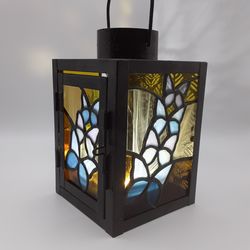Pyroxene Crystals Mineral Photography Glass jar candle
Quantity
Placed in a glass core and fitted with a wooden top, the glass jar candle functions as a stylish home decoration. Custom printed with an Australian Mineral geological thin section photo. Light it up and watch how the dancing flame brings the room to life! • 100% paraffin • 3.8″ × 3.2″ (97 × 80 mm) glass vessel • 0.2″ (5 mm) wooden top • Product weight: 1.2 lbs (545g) • Burning time up to 40 hours
IMAGE DETAILS:
The product shown is one of a series of Australian Minerals Series thin section images taken by my sister Sue Hanson during her career as a geologist. The photo shown is Photo 7 of 12 and depicts a magnified view (under crossed polars) of an agglomeration of pyroxene crystals. The photo is shared in Sue's memory.
HOW THE PHOTOS WERE CAPTURED:
These photographs were taken by Sue Hanson during her career as a geologist. This is the process in Sue's words:
After cutting and roughly trimming with a diamond tipped saw the rock is slowly cut, ground and then polished to a thickness of 0.03mm (30µm). Using resin to hold this incredibly thin slice of rock onto a glass slide the constituent minerals are now ready to be viewed under a polarising microscope. The diagnostic colors produced by projecting various wavelengths of light through the rock sliver, in conjunction with mineral shape and its association with other minerals are used to determine the mineral type. The diagnostic colors and shape of the mineral can also tell the experienced petrologist the approximate chemical composition of the mineral.

























